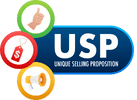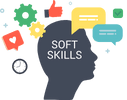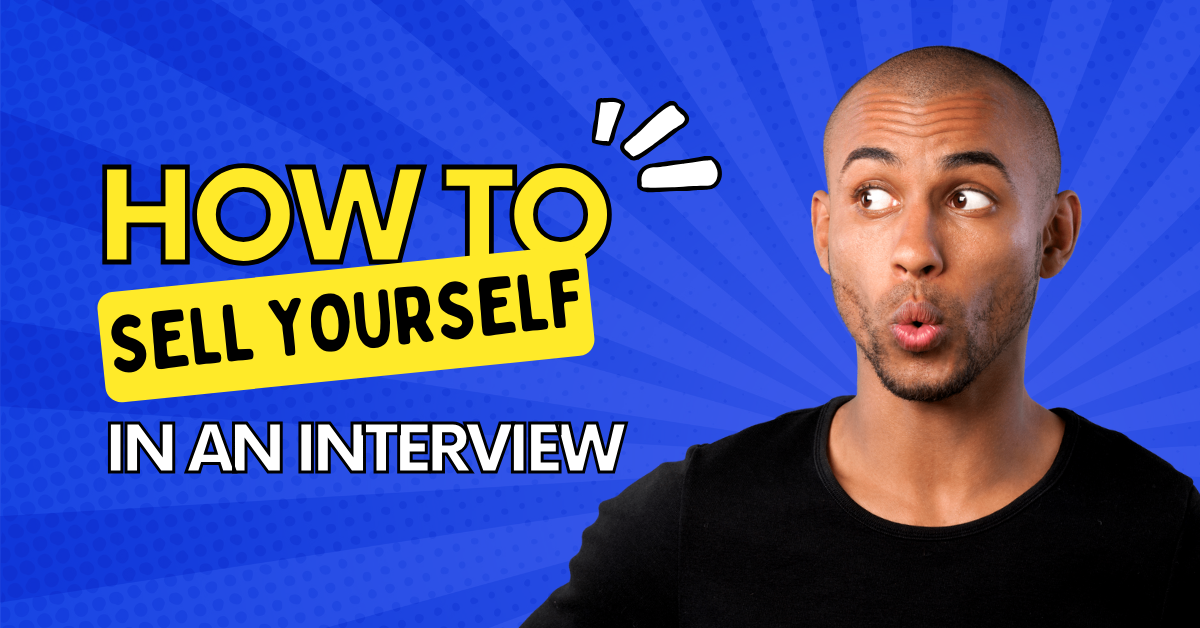Wondering how to sell yourself in an interview and stand out from the crowd? Look no further! This comprehensive guide will arm you with proven strategies to showcase your unique value, impress your interviewer, and land that dream job. A career coach can help you prepare for job interviews and improve your self-promotion skills, ensuring you navigate the interview process successfully. From crafting a compelling elevator pitch to mastering the art of the follow-up, we’ve got you covered. Get ready to transform your interview game and make a lasting impression!
- Understand Job Requirements
- Researching the Company: A Key to Acing Your Interview
- Identify Unique Selling Points
- Crafting a Compelling Elevator Pitch
- Highlight Key Achievements
- Soft Skills: The Secret to Acing Your Next Interview
- Practice Positive Body Language
- Prepare Insightful Questions
- Demonstrate Enthusiasm in Your Job Interview
- Relate Skills to Role
- Close With Impact
- Follow up With a Thank-You
- In Parting
Understand Job Requirements
Understanding Job Requirements: The Key to Acing Your Interview
When preparing for an interview, it’s crucial to grasp the specific job requirements to tailor your responses effectively. The first step is to thoroughly review the job description to identify the key skills and qualifications needed for the role.
Pay attention to the specific language used in the job posting, as it often highlights the attributes the employer values most. By understanding these job requirements, you can prepare examples from your past experiences that demonstrate your proficiency in these areas.
This targeted approach not only highlights your suitability but also shows that you’ve done your homework and are genuinely interested in the position.
For instance, if the job description emphasizes teamwork, be prepared to provide examples of successful team projects you’ve led or been a part of.
Aligning your qualifications with the job’s key skills allows you to confidently showcase how you meet the employer’s needs. This approach not only boosts your confidence but also demonstrates your enthusiasm for the role.

Researching the Company: A Key to Acing Your Interview
Before walking into an interview, it’s crucial to research the company ahead to tailor your responses effectively.
Understanding the company’s mission and values is essential to align your answers with their culture and goals.
This knowledge will help you showcase your enthusiasm for the role and demonstrate how you can contribute to the company’s success.
Staying updated on recent news and achievements is vital to show your up-to-date knowledge and genuine interest in the company.
Familiarizing yourself with their products or services, as well as their target market and competitors, helps you demonstrate your industry insight and expertise.
Reviewing the company’s social media presence provides additional context on their reputation and work environment, giving you a better understanding of their company culture.
Get Expert Help
Our cutting edge AI interview preparation gives you complete preparation for your interview. Get started Now!
Additionally, understanding the company’s culture and how it aligns with your values can help you highlight shared goals and demonstrate that you are a cultural fit.
This in-depth research not only boosts your confidence but also helps you make a lasting impression by showing that you’re well-prepared and genuinely interested in the role.

Identify Unique Selling Points
Identify Your Unique Selling Points to Stand Out in a Job Interview
After you’ve got a solid grasp of the job requirements, the next step is to identify what sets you apart from the rest.
What’re your unique selling points that align perfectly with the job needs?
In a job interview, it’s not about being the most qualified candidate, but about showcasing the specific skills, experiences, and achievements that make you a perfect fit for the role.
Pinpoint the strengths and qualities that match the company’s requirements and demonstrate how you can add value to the organization.
By way of example, if the job description requires excellent communication skills, be prepared to provide specific times you’ve effectively communicated complex ideas to diverse audiences in the past. This will help you stand out from other candidates who may just claim to have good communication skills.
By clearly articulating your unique selling points, you’ll differentiate yourself from others and leave a lasting impression on the hiring manager, boosting your chances of landing the role. This is especially important in today’s competitive job market, where hiring managers often have to sift through numerous qualified applicants.
So, how do you identify your unique selling points?
Start by reviewing the job description and requirements, and then make a list of your relevant skills, experiences, and achievements.
Ask yourself,
- “What sets me apart from others?”
- “What are my greatest strengths?”
- “What achievements am I most proud of?”
Next, tailor your unique selling points to the job description, demonstrating why you’re the ideal fit. For example, if the job requires project management skills, highlight your experience in managing successful projects from start to finish, and provide specific metrics on how you’ve improved project efficiency and productivity.
Remember, it’s not just about listing your skills and experiences, but about providing evidence and examples to support your claims. This will make your unique selling points more compelling and believable to the hiring manager. Highlighting positive feedback received from clients or senior management can also serve as proof of your hard work and dedication.

Crafting a Compelling Elevator Pitch
What’s the big deal about elevator pitches?
In a nutshell, it’s about making the best first impression you can in a job interview.
Your elevator pitch is a concise, 30-second to 1-minute summary of your experience, skills, and goals.
It’s designed to showcase your unique selling points (USPs) and grab the interviewer’s attention.
To craft a winning pitch, focus on your key accomplishments that align with the job you’re applying for. Tailor your pitch to the specific company and role, demonstrating your readiness and enthusiasm for the position.
Practice delivering your pitch confidently and smoothly, ensuring it highlights your value and sets you apart from other candidates.
Get Expert Help
Our cutting edge AI interview preparation gives you complete preparation for your interview. Get started Now!
Why is it essential to tailor your pitch?
Because it shows you’ve taken the time to understand the company’s needs and requirements. It also demonstrates your ability to adapt and be flexible, which are valuable skills in any profession. By tailoring your pitch, you’re more likely to resonate with the interviewer and leave a lasting impression.
What makes a great elevator pitch?
It’s not just about rattling off your achievements; it’s about making a lasting impression during job interviews by telling a story that showcases your skills and experience. Use specific examples to illustrate your points, and make sure your pitch is concise and easy to understand.
Avoid using jargon or technical terms that might confuse the interviewer. Instead, focus on the benefits you can bring to the company, and how you can contribute to its success.
How do you practice your elevator pitch?
Start by writing down your key accomplishments and skills. Identify the most important points you want to highlight, and craft a narrative around them. Practice your pitch in front of a mirror, record yourself, or ask a friend for feedback. The more you practice, the more confident you’ll feel, and the more natural your pitch will sound.
What’s the key to delivering a successful elevator pitch?
It’s all about confidence and enthusiasm. Believe in yourself and your abilities and show the interviewer that you’re excited about the opportunity. Make eye contact, vary your tone, and use body language to convey your passion and energy.
Remember, your pitch is a conversation starter, not a monologue. Be prepared to answer questions and engage in a discussion about your qualifications and experience.

Highlight Key Achievements
When preparing for an interview, it’s essential to highlight your key achievements with specific metrics to demonstrate your value to the company.
Using real numbers to quantify your achievements makes your contributions tangible and helps you stand out from other candidates.
Instead of saying “increased revenue,” say “increased revenue by 25%.” By focusing on results and using hard numbers, you’ll present yourself as a valuable asset.
Showcasing key achievements that align with the job requirements and focusing on results illustrates the impact of your work.
Employ storytelling techniques to make your accomplishments compelling and memorable.
Describe a challenge, explain the actions you took, and highlight the positive outcomes.
Tailor your examples to align with the company’s goals, demonstrating how you can contribute to their success.
For example, if you’re applying for a marketing position, you could say:
“In my previous role, I increased website traffic by 50% through targeted social media campaigns, resulting in a 25% increase in sales.”
This shows the company that you can drive results and contribute to their success.
Remember to use active voice and avoid clichés and overused words.
By using specific metrics and storytelling techniques, you’ll make your achievements more compelling and memorable.

Soft Skills: The Secret to Acing Your Next Interview
Showcasing your soft skills during an interview can make all the difference by demonstrating your ability to effectively communicate, collaborate, and solve problems.
When it comes to communication skills, it’s essential to provide concrete examples of how you’ve successfully conveyed ideas or resolved conflicts in the past. For instance, you could share a story about a time you had to present a complex project to a non-technical team, and how you adapted your language to ensure everyone understood the key points.
Emphasizing your teamwork abilities is also crucial, so be prepared to share instances where your collaboration led to successful project outcomes.
Think about a project where you worked closely with a cross-functional team to meet a tight deadline, and how your collaborative efforts resulted in a high-quality deliverable.
Next, highlight your problem-solving skills by sharing concrete examples of challenges you’ve tackled in the past. For example, you could describe a situation where you identified a process bottleneck and implemented a solution that increased efficiency by a significant percentage.
Finally, showcase your adaptability by explaining how you’ve thrived in changing environments or quickly learned new skills. This could involve sharing an experience where you’d adapt to a new software tool or process, and how you quickly got up to speed and became proficient.
Get Expert Help
Our cutting edge AI interview preparation gives you complete preparation for your interview. Get started Now!
By highlighting these essential soft skills, you’ll demonstrate that you’re not only capable of doing the job but also excelling in a dynamic work environment.
Remember, it’s not just about getting the job done; it’s about how you work with others, communicate effectively, and adapt to new situations.
In today’s fast-paced work environment, employers are looking for candidates who can thrive in a rapidly changing landscape. By showcasing your soft skills, you’ll set yourself apart from other candidates and demonstrate your value as a team player and problem solver.

Practice Positive Body Language
Mastering positive body language is crucial for acing an interview, as it conveys confidence and professionalism.
When you maintain eye contact, you show engagement and assurance, which can instantly make a positive impression on the interviewer.
Sitting up straight projects confidence and attentiveness, making you appear more put together and focused.
Using hand gestures moderately can emphasize your points and make you seem more dynamic but be careful not to overdo it.
A genuine smile can go a long way in creating a positive impression and making you seem approachable, which is essential for building a connection with the interviewer.
On the other hand, slouching or fidgeting can undermine your self-assurance and give the impression that you’re not taking the interview seriously.
Positive body language and nonverbal communication are essential in conveying your confidence and professionalism, and by mastering these elements, you’ll be well on your way to leaving a lasting, favorable impression on the interviewer.
Remember, body language is just as important as your responses to the interview questions, so make sure you’re paying attention to both.
Research has shown that nonverbal cues can account for up to 93% of communication, making it a crucial aspect of the interview process.
By being mindful of your body language and nonverbal communication, you can take control of the interview and showcase your confidence and professionalism.
So, take a deep breath, stand up straight, and smile – you got this!
Practice makes perfect, so don’t be afraid to practice your positive body language in front of a mirror or with a friend.
Get Expert Help
Our cutting edge AI interview preparation gives you complete preparation for your interview. Get started Now!

Prepare Insightful Questions
When preparing for an interview, it’s essential to craft insightful questions that demonstrate your genuine interest in the role and company. This shows that you’ve taken the time to research the company and understand their needs and goals.
Asking thoughtful questions about the company culture, team dynamics, and future projects can help you stand out as a candidate. It’s crucial to research the company thoroughly to tailor your questions specifically to their needs and goals.
For instance, you could ask about how the team collaborates on major projects or what the company’s long-term vision is. This not only shows your genuine interest but also helps you assess if the company is the right fit for you.
Avoid asking generic questions that don’t provide any real value. Instead, focus on questions that reveal deeper insights into the organization. Your well-crafted questions will leave a lasting impression on the interviewer and show that you’re genuinely interested in the role.
Crafting Insightful Questions
So, how do you craft insightful questions that will leave a lasting impression on the interviewer? The key is to research the company thoroughly and understand their needs and goals.
Look at the company’s website, social media, and news articles to get a sense of their current projects and initiatives. You can also look at reviews from current and former employees to get a sense of the company culture.
Once you have a good understanding of the company, you can start crafting your questions. Ask specific questions about the company culture, team dynamics, and future projects.
For example, you could ask about the company’s approach to diversity and inclusion or how they prioritize employee development.
A good question is to ask about the biggest challenges the team is currently facing and how they’re addressing them.
Remember, the goal is to ask questions that provide real value and insight into the company. Avoid asking questions that can easily be answered by doing research on the company’s website.
Insightful Questions to Ask
Here are some examples of insightful questions you could ask during an interview:
- What are the biggest challenges the team is currently facing, and how are they addressing them?
- Can you tell me more about the company culture and how it impacts the way the team works?
- How does the company approach diversity and inclusion, and what initiatives are in place to promote it?
- What are the company’s long-term goals, and how does this role contribute to achieving them?
- How does the team collaborate on major projects, and what tools or software do they use to facilitate communication?
- What opportunities are there for professional development and growth within the company?
- What sets this company apart from its competitors, and how does it impact the way the team works?
Asking insightful questions not only shows your genuine interest in the role but also helps you assess if the company is the right fit for you. Remember to research the company thoroughly and craft questions that provide real value and insight into the organization.

Demonstrate Enthusiasm in Your Job Interview
Are you tired of feeling like just another candidate in a long line of applicants? Do you want to stand out from the crowd and show the interviewer that you’re genuinely excited about the opportunity?
Demonstrating enthusiasm is key to making a lasting impression and landing your dream job.
Express Your Genuine Interest
When researching the company, don’t just stop at their mission statement or product description. Dig deeper and learn about their current projects, values, and goals. This will show the interviewer that you’re not just looking for any job, but that you’re genuinely interested in the company and its mission.
Show Your Passion for the Industry
Don’t be afraid to show your passion for the industry. Share your thoughts on the latest trends, innovations, and challenges. Explain how your skills and experience align with the company’s goals and mission. This shows your commitment to the industry and your desire to make a meaningful contribution.
Positive Body Language Matters
It’s not just what you say, but how you say it. Maintain eye contact, smile, and use open and confident body language to convey your enthusiasm. Avoid crossing your arms or legs, which can give the impression that you’re closed off or defensive.
Contribute to the Team
Show the interviewer that you’re not just looking for a job, but that you’re excited to contribute to the team and make a positive impact on the company. Highlight specific projects or initiatives that you’re enthusiastic about and explain how you can help drive their success.
Your Enthusiasm is Infectious
When you’re genuinely enthusiastic about the opportunity, it’s infectious. The interviewer will appreciate your positive energy and be more likely to remember you after the interview. So, don’t be afraid to show your excitement and passion for the role.
How to Show Enthusiasm in a Job Interview
Use positive language and tone to convey your excitement about the opportunity. Ask thoughtful and insightful questions about the company and the role. Show genuine interest in the company’s projects and initiatives. Highlight your skills and experience and explain how they align with the company’s goals. Use positive body language to convey confidence and enthusiasm.
Don’t just pretend to be enthusiastic. The interviewer will be able to tell if you’re not genuine. Don’t overdo it. Enthusiasm is great, but don’t be overly energetic or aggressive.
Don’t forget to show your enthusiasm throughout the entire interview, not just at the beginning or end.

Relate Skills to Role
When applying for a job, it’s essential to demonstrate how your skills and experiences perfectly align with the role you’re aiming for.
This is crucial because it shows the interviewer that you’ve taken the time to understand the job’s requirements and that you have what it takes to excel in that position.
Highlight your past achievements and explain how they directly correspond to the job’s responsibilities. For instance, if the job requires project management skills, mention a specific project where you’ve successfully led a team to achieve a particular goal.
Use specific examples to illustrate how your skills will benefit the company. Mention particular projects where you’ve excelled and how those experiences make you a strong fit for the role.
Don’t forget to emphasize transferable skills that are relevant and showcase your adaptability. This approach ensures the interviewer recognizes your potential and how you can meet their needs.

Close With Impact
When it comes to acing an interview, the final impression is just as crucial as the first.
To leave a lasting impact, reiterate your enthusiasm for the role and how your skills align with the company’s objectives.
This is your chance to summarize the key points that showcase your expertise and experiences, making it clear why you’re the perfect fit for the position.
Express gratitude for the opportunity to interview, which not only shows respect for the interviewer’s time but also reinforces your interest in the company.
Mention your excitement about the possibility of contributing to the team’s success, which will leave a positive impression on the interviewer.
By closing the interview in this manner, you’ll demonstrate professionalism, interest, and a clear understanding of the company’s goals.

Follow up With a Thank-You
Sending a thank-you note after an interview is crucial in today’s competitive job market. It’s a simple yet effective way to stand out from other candidates and leave a lasting impression. A personalized note shows your enthusiasm for the position and appreciation for the opportunity.
Timing is Everything
Be prompt and send your thank-you note within 24 hours of the interview. This demonstrates your attentiveness and eagerness to move forward in the hiring process. It also shows that you’re organized and can follow through on commitments.
Make it Personal
Mention specific details from the interview to show you were actively listening. Reinforce your qualifications and highlight how they align with the company’s needs. Express your gratitude for the interviewer’s time and reiterate your interest in the role.
The Power of a Thank-You Note
A well-written thank-you note can be the key to securing the job. It’s a chance to reiterate your interest and leave a lasting impression on the interviewer. Don’t underestimate the power of a simple thank-you note – it can make all the difference in getting hired.
How to Write an Effective Thank-You Note
Start by expressing your gratitude for the interviewer’s time.
Mention something specific you discussed during the interview to show you were paying attention.
Reiterate your interest in the role and highlight your relevant skills. Keep it concise and to the point – aim for a few paragraphs at most.
Don’t Forget the Follow-Up
A thank-you note isn’t a one-time task – it’s part of a larger follow-up strategy. Be sure to follow up with the interviewer or hiring manager after a week or two. This demonstrates your continued interest in the position and helps keep you top of mind.
Get Expert Help
Our cutting edge AI interview preparation gives you complete preparation for your interview. Get started Now!
In Parting
I’ve tried to break down what you need to do in an interview to sell yourself. There are a few different but important points to remember. There are 11 different things that you have to do to sell yourself in an interview in the best possible way.
One specific way in which you can cover all of these things is by using our interview preparation services. You’ll find out where you are good and where you are lacking. You’ll also get training and practice so you can take your performance to the next level.
Good luck in your interview!


